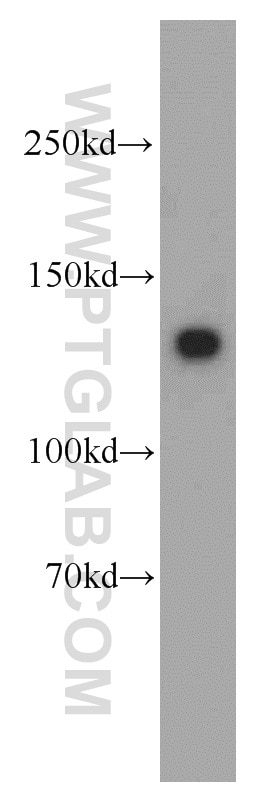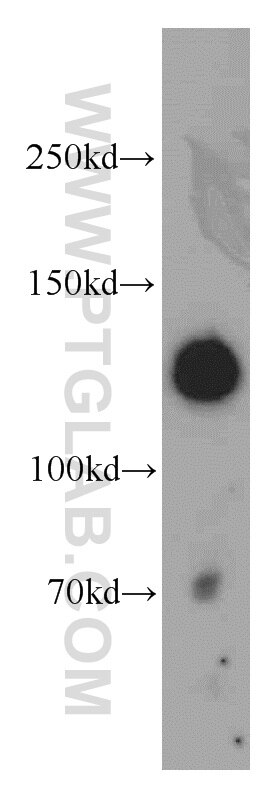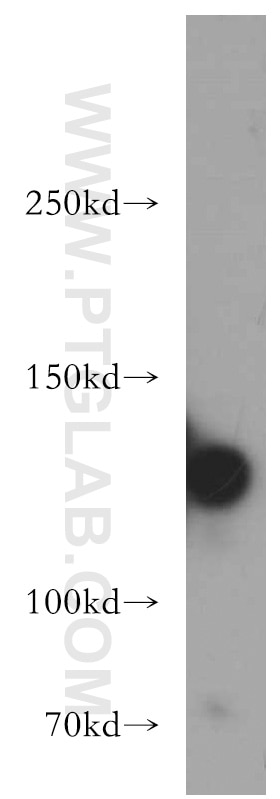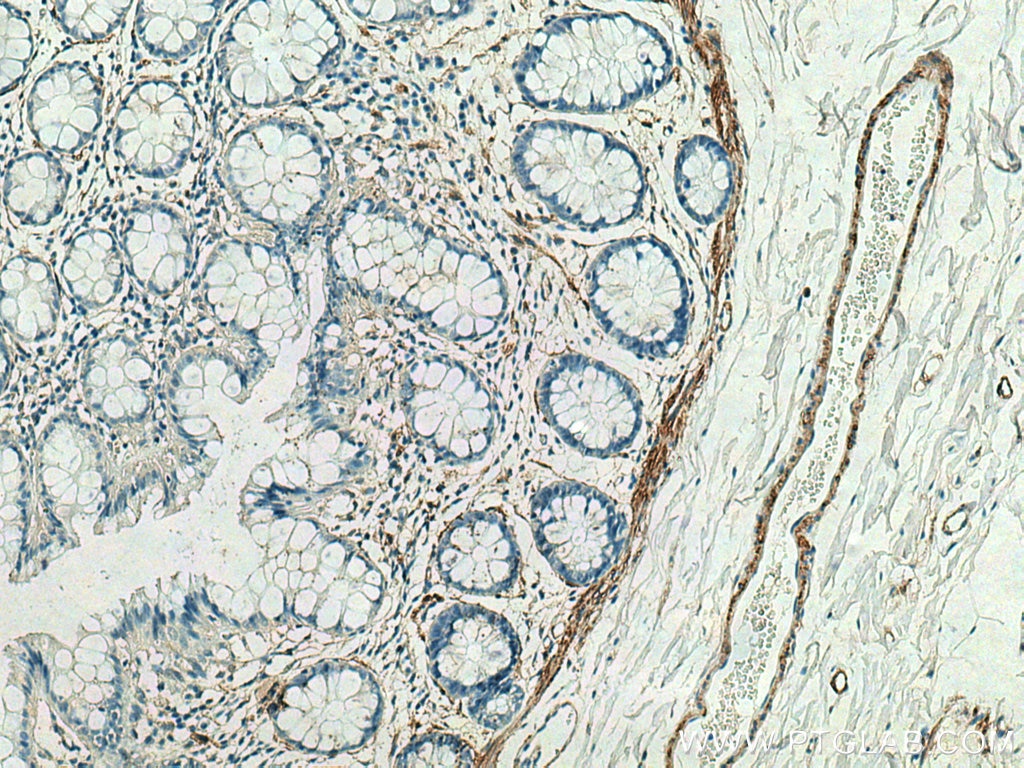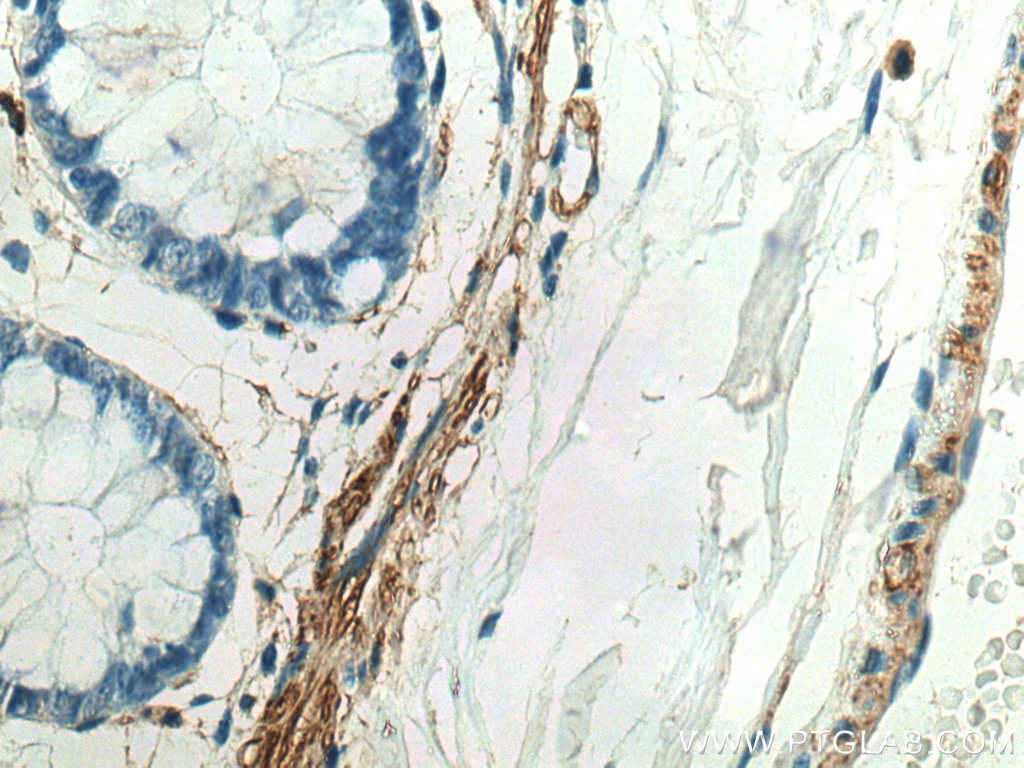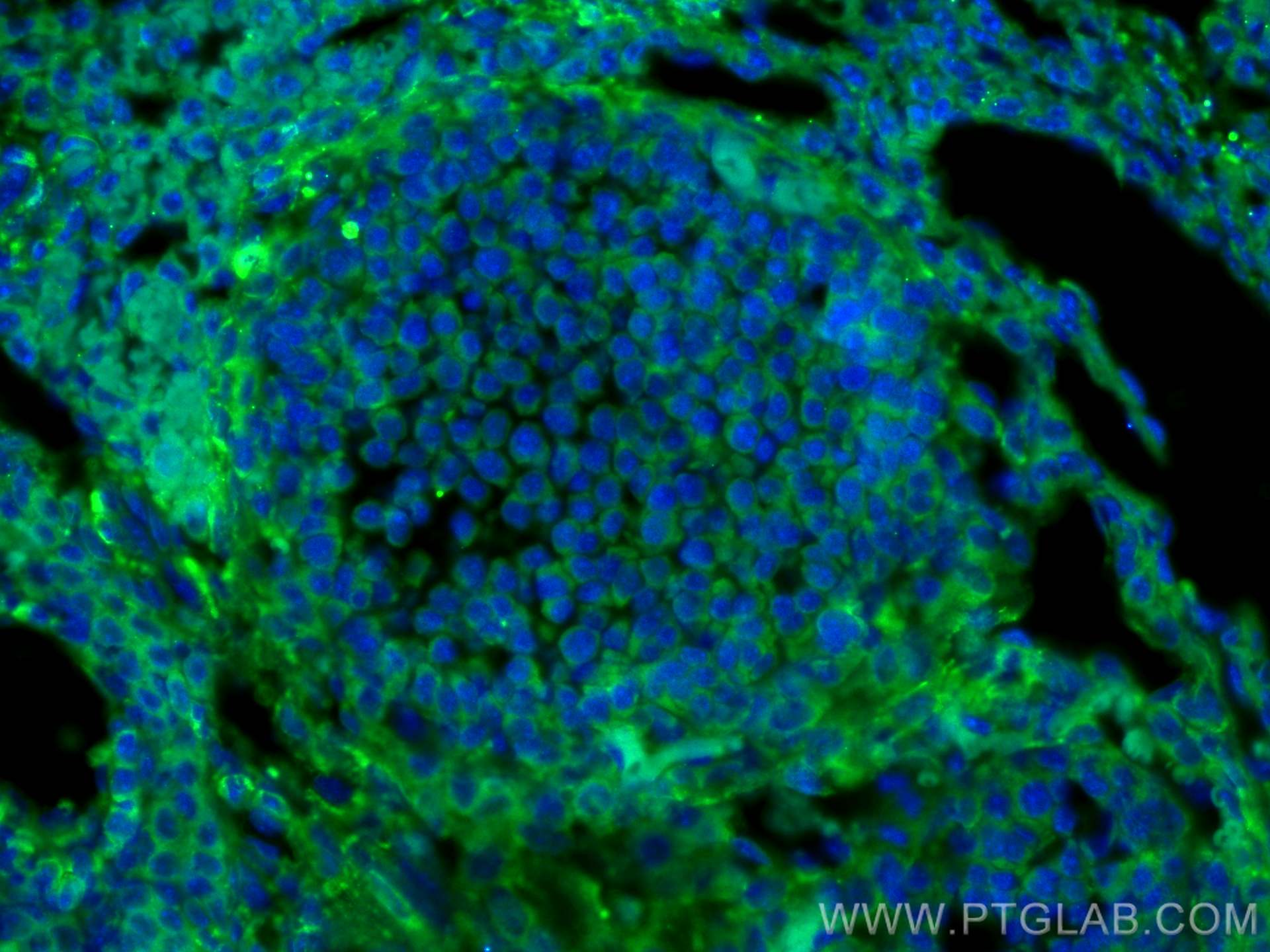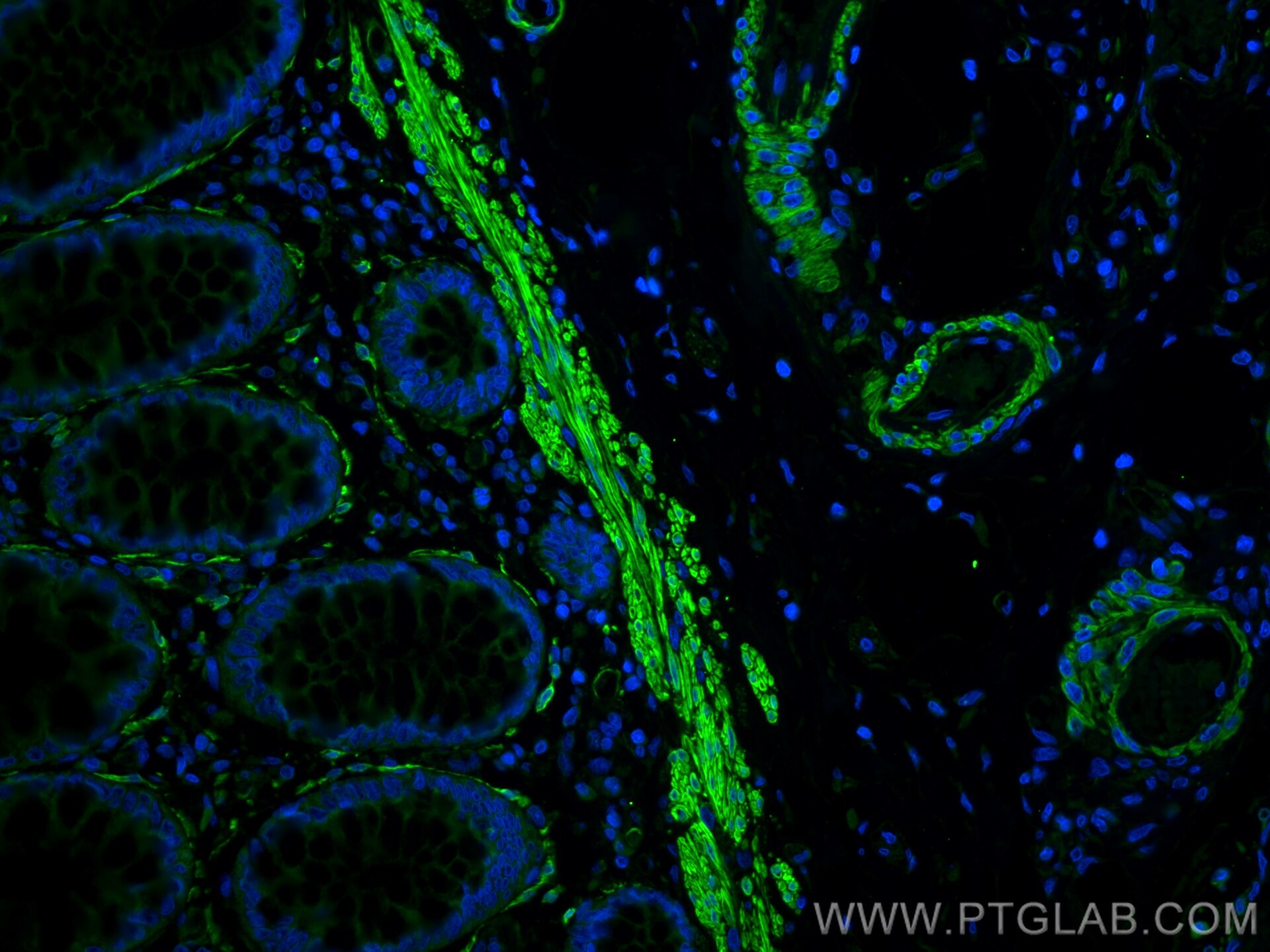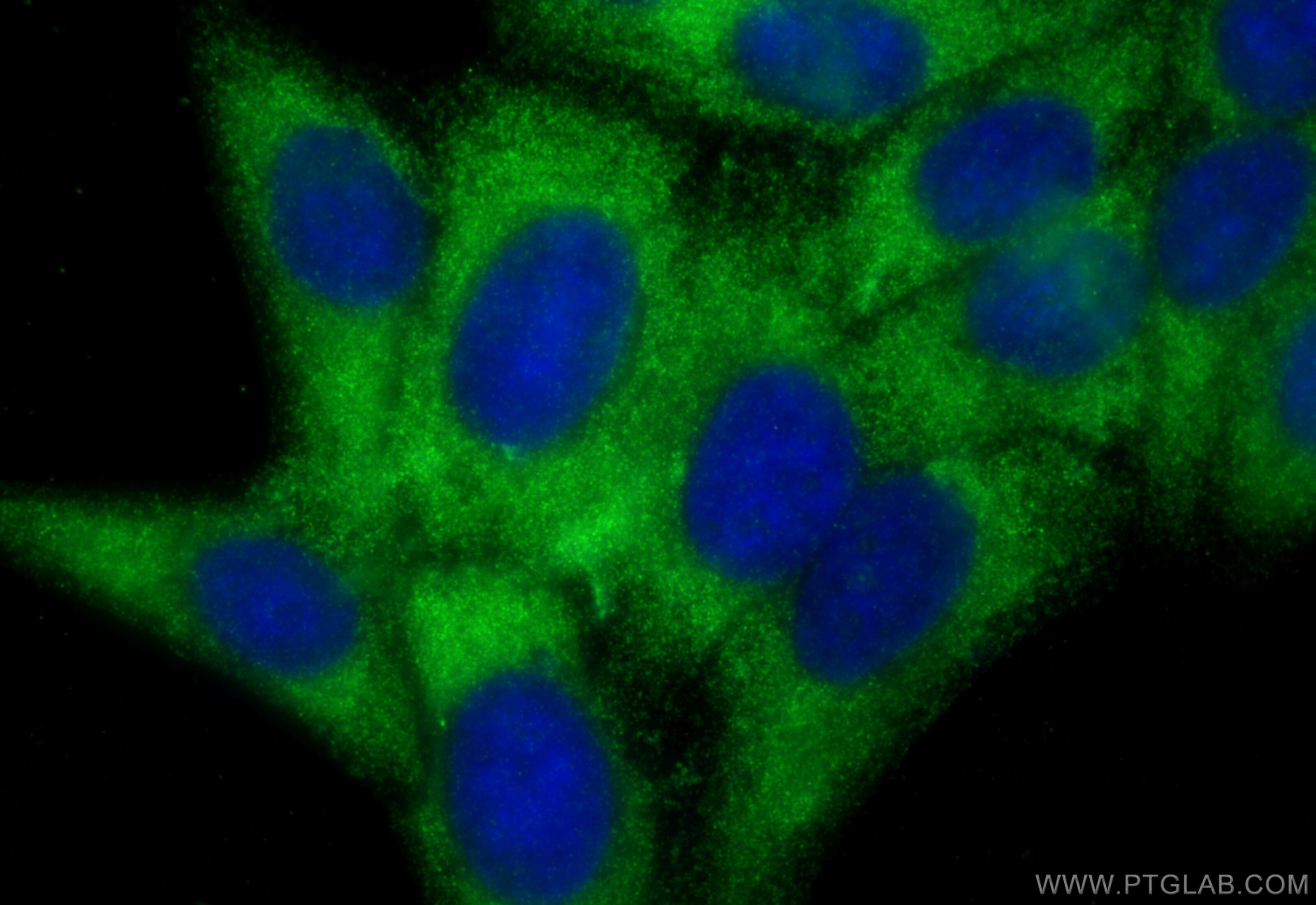Validation Data Gallery
Tested Applications
| Positive WB detected in | mouse uterus tissue, mouse large intestine tissue |
| Positive IHC detected in | human colon tissue Note: suggested antigen retrieval with TE buffer pH 9.0; (*) Alternatively, antigen retrieval may be performed with citrate buffer pH 6.0 |
| Positive IF-P detected in | mouse ovary tissue, human rectal cancer tissue |
| Positive IF/ICC detected in | HepG2 cells |
Recommended dilution
| Application | Dilution |
|---|---|
| Western Blot (WB) | WB : 1:500-1:2400 |
| Immunohistochemistry (IHC) | IHC : 1:200-1:800 |
| Immunofluorescence (IF)-P | IF-P : 1:50-1:500 |
| Immunofluorescence (IF)/ICC | IF/ICC : 1:200-1:800 |
| It is recommended that this reagent should be titrated in each testing system to obtain optimal results. | |
| Sample-dependent, Check data in validation data gallery. | |
Published Applications
| WB | See 22 publications below |
| IHC | See 3 publications below |
| IF | See 6 publications below |
| CoIP | See 1 publications below |
Product Information
21642-1-AP targets MYLK in WB, IHC, IF/ICC, IF-P, CoIP, ELISA applications and shows reactivity with human, mouse, rat samples.
| Tested Reactivity | human, mouse, rat |
| Cited Reactivity | human, mouse, rat, pig, monkey |
| Host / Isotype | Rabbit / IgG |
| Class | Polyclonal |
| Type | Antibody |
| Immunogen | MYLK fusion protein Ag16306 相同性解析による交差性が予測される生物種 |
| Full Name | myosin light chain kinase |
| Calculated molecular weight | 1914 aa, 211 kDa |
| Observed molecular weight | 135 kDa |
| GenBank accession number | BC113456 |
| Gene Symbol | MYLK |
| Gene ID (NCBI) | 4638 |
| RRID | AB_10734590 |
| Conjugate | Unconjugated |
| Form | Liquid |
| Purification Method | Antigen affinity purification |
| UNIPROT ID | Q15746 |
| Storage Buffer | PBS with 0.02% sodium azide and 50% glycerol , pH 7.3 |
| Storage Conditions | Store at -20°C. Stable for one year after shipment. Aliquoting is unnecessary for -20oC storage. |
Background Information
MYLK(Myosin light chain kinase) is also named as MLCK, MLCK1, MYLK1 and belongs to the protein kinase superfamily. It is a key enzyme in muscle contraction. Its activation is sufficient to enhance paracellular permeability and is required for tight junction barrier regulation in response to Na+-nutrient cotransport, inflammatory cytokines, or pathogenic bacteria(PMID:20404178). The expression of smooth muscle MYLK is tissue-specific. Smooth muscle MYLK generates three different proteins, long MYLK, short MYLK, and telokin. The 130-kDa smooth muscle, or short, MYLK (130 kDa) is expressed in smooth muscles. It has 8 isoforms produced by alternative splicing and alternative initiation and our anti-MYLK antibody can recognize these isforms.
Protocols
| Product Specific Protocols | |
|---|---|
| WB protocol for MYLK antibody 21642-1-AP | Download protocol |
| IHC protocol for MYLK antibody 21642-1-AP | Download protocol |
| IF protocol for MYLK antibody 21642-1-AP | Download protocol |
| Standard Protocols | |
|---|---|
| Click here to view our Standard Protocols |
Publications
| Species | Application | Title |
|---|---|---|
Research (Wash D C) The Mechanics of Tumor Cells Dictate Malignancy via Cytoskeleton-Mediated APC/Wnt/β-Catenin Signaling | ||
Mucosal Immunol Transmigrated neutrophils in the intestinal lumen engage ICAM-1 to regulate the epithelial barrier and neutrophil recruitment. | ||
Int J Biol Sci Aryl Hydrocarbon Receptor Activation Modulates Intestinal Epithelial Barrier Function by Maintaining Tight Junction Integrity. | ||
FEBS J Dihydroartemisinin counteracts fibrotic portal hypertension via farnesoid X receptor-dependent inhibition of hepatic stellate cell contraction. | ||
Front Med (Lausanne) Depiction of Aging-Based Molecular Phenotypes With Diverse Clinical Prognosis and Immunological Features in Gastric Cancer. | ||
Metallomics Lanthanum chloride causes blood-brain barrier disruption through intracellular calcium-mediated RhoA/Rho kinase signaling and myosin light chain kinase. |
